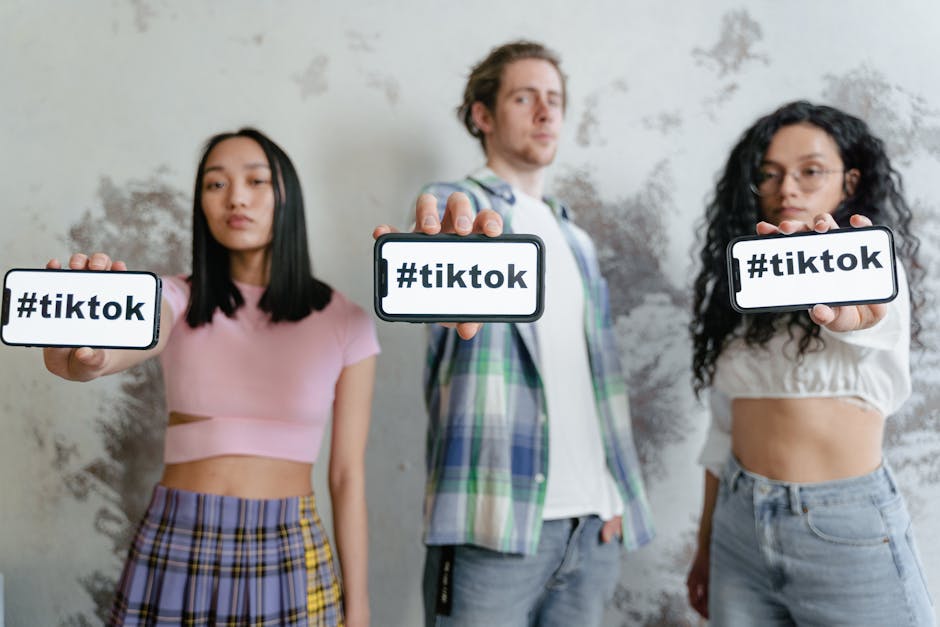The Hidden Hand: Social Media's Role in Sports Narratives
In today's digital world, athletes are no longer just competitors but are also storytellers and brands in their own right. Social media has emerged as a powerful tool that reshapes the way fans engage with sports narratives and how athletes market themselves. This shift is not merely cosmetic; it has profound implications on public perception, athlete sponsorships, and the very fabric of sports journalism. Let's explore how social media subtly influences these dynamics, turning ordinary athletes into global icons.
The Rise of the Athlete as a Brand

Social media platforms like Instagram, Twitter, TikTok, and Facebook have allowed athletes to connect with their fans directly. This real-time interaction is changing how athletes present their personas and market themselves. As a result, athletes are not just defined by their performances but also by their personalities, beliefs, and interests shared on these platforms.
Consider the journey of LeBron James, who has utilized social media to craft a narrative that goes beyond basketball. Through his platform, he discusses social justice issues, shares glimpses of his personal life, and promotes his business ventures. His ability to seamlessly blend athletic achievements with personal branding has elevated his marketability significantly. According to a report by Forbes, LeBron holds the top spot as the highest-paid athlete in the world, proving that an athlete's public narrative heavily relies on social media engagement.
The Evolution of Sports Narratives

The traditional narratives in sports were often crafted by journalists who had limited access to athletes. However, social media has democratized storytelling, allowing athletes to share their versions of the story. No longer are they mere subjects of media scrutiny; they can proactively shape their narratives. This influx of direct communication has led to an explosion of vibrant sports storytelling, often driven by viral content.
One notable example is Serena Williams, who routinely uses her social media platforms to give fans a behind-the-scenes look at her training regimens, her family life, and her advocacy for women's rights. This multi-faceted approach helps humanize her, making her relatable and enhancing her fanbase's loyalty. As a result, brands are keen to leverage her influence, leading to numerous lucrative endorsement deals.
But it’s not just superstars; even younger or less-known athletes have tapped into this trend. Platforms like TikTok have given rise to athletes who gain popularity through humorous or innovative content. For instance, Khalil Mack, an NFL player, gained a social following by sharing snippets of his training routines in unique and engaging ways, thus cultivating a fanbase that goes beyond just football aficionados.
The Viral Culture of Sports Commentary

The emergence of viral culture has shifted how sports are discussed online. Opinions, critiques, and fan engagements are now accessible with a mere click and often go viral within minutes, impacting game narratives and athlete branding. Social media enables fans to engage in conversations effortlessly, creating narratives that surpass just the games themselves.
The salary of NFL players like Patrick Mahomes skyrocketed not only due to his abilities on the field but also because the viral moments captured through social media—from unbelievable plays to personal milestones—enhance his visibility and marketability. His social media presence has played a crucial role in bridging the gap between his performance and fan engagement, driving significant sponsorship opportunities and partnerships.
Social Media and Fan Engagement

Fan engagement has transformed in the digital age thanks to social media, building communities around teams, players, and even causes. This deepens loyalty, creating a more invested fanbase that shares, comments, and interacts directly with athletes. Unlike traditional media, athletes can respond, interact, and embrace feedback in real time, giving a more democratized sense of community within their following.
Consider the case of the Philadelphia Eagles and their Super Bowl victory in 2018. The team leveraged social media platforms to enhance fan engagement, allowing players to connect directly with their audience. This not only reinforced team spirit but also created a massive online community that shared in their triumph, further solidifying the bond between the team and their fans.
Moreover, fan engagement through social media creates rich data sets that can be analyzed for marketing insights. As discussed in The Quantum Leap in Sports: Revolutionizing Analytics Strategy, understanding fan sentiments on social media can help teams structure targeted marketing strategies and enhance connection opportunities with their audience.
The Implications for Sponsorships

As athletes cultivate their brands online, sponsorship dynamics have also begun to shift. Brands no longer seek just the most talented athletes; they are searching for individuals who resonate well with their values and can reach desired audiences effectively. This change grants athletes who engage well on social media significant leverage.
Athletes who effectively build their personal brands on social media can demand higher endorsement fees and engage in more meaningful partnerships. According to a Nielsen report, 70% of consumers feel closer to brands when accompanied by an athlete who shares their personal story, indicating that athletes’ narratives on social media play a critical role in successful sponsorships.
For instance, countless athletes are prevalent in lifestyle branding, from shoes to clothing lines, resulting in sponsorships that extend beyond the athletic realm. They are now brand ambassadors who shape their narrative, placing themselves at the forefront of development discussions associated with products that align with their public persona.
The Changing Landscape of Sports Journalism

Sports journalism is adapting to these changes. The once traditional forms of reporting are evolving, with digital content leading the way. Journalists now track trending social media discussions closely, providing timely analysis that reflects the ever-changing perspectives of the audience.
The convergence of social media and journalism necessitates that sports reporters remain agile and attuned to the narratives circulating online. In an era where breaking news can spread like wildfire on Twitter, sports journalists are learning to collaborate with athletes rather than just report on their lives. For instance, platforms like Bleacher Report have integrated social media analysis into their reporting, recognizing the invaluable insights that fan interactions offer.
The Ethical Dilemma

While social media certainly offers athletes opportunities to craft their narratives, it also raises questions around authenticity and ethics. Misinformation can spread rapidly, and athletes can find themselves at the center of controversy or narrative wars sparked by social media. The need for athletes and their management teams to navigate these challenges is now paramount.
Recent instances, such as the backlash faced by athletes who faced allegations despite having built a strong personal brand online, show the continuing complexity of managing one's digital persona. The immediacy of social media can create a rapid fall from grace, making it critical for athletes to craft genuine, relatable content while being vigilant about their online presence.
Looking Ahead: What Lies Beneath the Surface

As we advance, it's clear that the interplay between social media, sports narratives, and athlete branding will continue to evolve. Emerging platforms like the metaverse promise even more immersive fan experiences, blurring the lines between traditional media and digital engagement. Athletes can expect to engage in deeper connections with fans through augmented reality, virtual meet-and-greet events, and interactive content—all of which rely on their ability to weave compelling narratives that resonate with a global audience.
Athletic personas will be shaped as much by what athletes share on social media as by their physical performances. Stories of resilience, personal struggles, and community engagement are bound to gain prominence, allowing a diverse array of athletes to gain recognition and redefine success in a way that goes beyond traditional statistics.
Vanquishing the traditional narratives, athletes now have the freedom to express their selves and connect with fans directly. This change in the landscape implies that the business side of sports will also need to be agile, evolving with the nuances of this new digital-first world.
Final Thoughts
In this ever-changing sports landscape, social media isn't just an accessory; it's a transformative force redefining sports narratives and athlete marketability. Understanding this relationship is crucial for sports professionals, fans, and the brands that look to connect with audiences. As athletes navigate their unique narratives while staying engaged with fans, the power of social media will undoubtedly continue to shape the future of sports.
By engaging authentically with fans and crafting compelling stories, athletes stand not only to elevate their brands but also to impact their fields, communities, and the sports world on broader scales. As new platforms emerge and technology continues to evolve, the convergence of sports, storytelling, and social media is set to reach new heights.
For a deeper dive into the multifaceted impact of social media on sports, check out related topics like Beyond the Whistle: AI's Role in Shaping Coaching Evolution and The Science of Storytelling in Sports: Shaping Identity and Loyalty to broaden your understanding of this unique and fascinating landscape.



